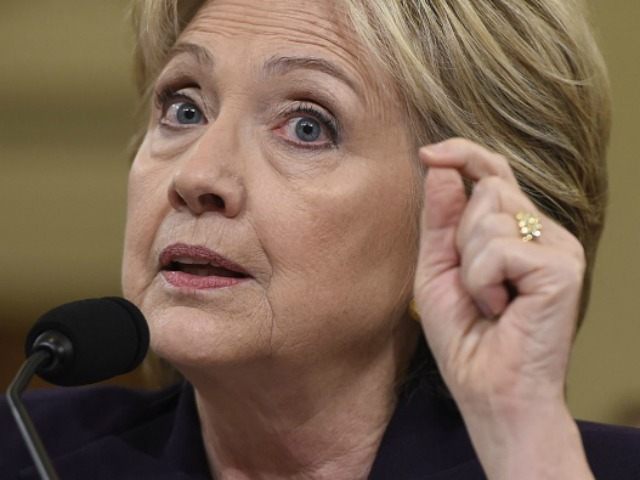what - James Comey: Special Prosecutor in Email
Post# of 52068

Special Prosecutor in Email Probe
‘Would Have Been Unfair to crooked Hillary’
< >

Former FBI Director James Comey wrote in his recently released memoir that appointing a special counsel to handle the Hillary Clinton email probe due to concerns over Attorney General Loretta Lynch’s impartiality “would have been unfair to Hillary Clinton.”
Comey, however, had no problem taking actions to ensure a special prosecutor in the case of Donald Trump and unsubstantiated claims of Russian collusion based in part on charges made inside a largely-discredited dossier financed by Clinton’s 2016 presidential campaign and the Democratic National Committee (DNC).
In testimony before the Senate Intelligence Committee last June, Comey said he shared memos memorializing his private conversations with Donald Trump “with a friend” to in turn provide the contents to a reporter “because I thought that might prompt the appointment of a special counsel.” Comey’s leak of memos, portions of which were later classified, reportedly prompted the Justice Department’s watchdog to review the issue.
In the case of Clinton’s email probe, Comey relates numerous issues with Lynch’s actions that he says may have tainted the public perception that the Justice Department could oversee the case in an unbiased manner.
Yet Comey relates why he decided against pushing for a special counsel:
A different FBI director might have called for the appointment of a special prosecutor in late June, after Bill Clinton’s visit to the attorney general’s plane. I still think that would have been unfair to Hillary Clinton, but I can imagine another director doing it that way rather than trying to protect the institutions in the way I did.
Comey was referring to Lynch’s infamous tarmac meeting at the Phoenix Sky Harbor International Airport with former President Bill Clinton, the husband of the FBI’s main subject in a criminal probe. Clinton boarded the attorney general’s plane and reportedly stayed there for about 20 minutes.
Comey faced widespread controversy for failing to seek Lynch’s recusal from the Clinton email probe.
In a letter from Deputy Attorney General Rod J. Rosenstein recommending that Comey be fired from his position as FBI director, Rosenstein admonished Comey for failing to seek Lynch’s recusal and instead bypassing the Justice Department to make public pronouncements about the case.
“The Director now defends his decision by asserting that he believed Attorney General Lynch had a conflict,” Rosenstein wrote. “But the FBI Director is never empowered to supplant federal prosecutors and assume command of the Justice Department. There is a well-established process for other officials to step in when a conflict requires the recusal of the Attorney General.”
In his memoir, Comey admits that he found Lynch’s refusal to fully recuse herself from the case to be “very strange.”
He added:
Given the attorney general’s tortured half-out, half-in approach, I again considered calling for the appointment of a special prosecutor. The appointment of a special prosecutor — someone outside the normal chain of command and with powers to ensure independence — was, as noted, a rare step. But I decided it would be brutally unfair to do that.
Comey claimed his decision not to advocate for a special counsel in the Clinton case was “not a political decision, but an ethical one, driven by our values.” He further claimed that a special counsel “would give a false impression to the American people; in other words, it would be a lie.”
In Trump’s case, besides leaking his memos to the news media in an admitted attempt to prompt a special counsel, Comey’s memos document his lack of response to Trump’s requests to tell the American people that he was not under investigation. Trump complained that the “cloud” of the Russia probe was impeding his ability to effectively govern, according to the memos. This in contrast to Clinton’s case, where Comey was concerned that a special counsel “would give a false impression to the American people.”
Besides her tarmac meeting, Comey had other concerns about Lynch. Comey recounted how he relented when Lynch convinced him to use the word “matter” instead of “investigation” during public comments about the Clinton probe. This despite the Justice Department knowing the FBI probe was not only an official investigation but a criminal investigation.
 (0)
(0) (0)
(0)